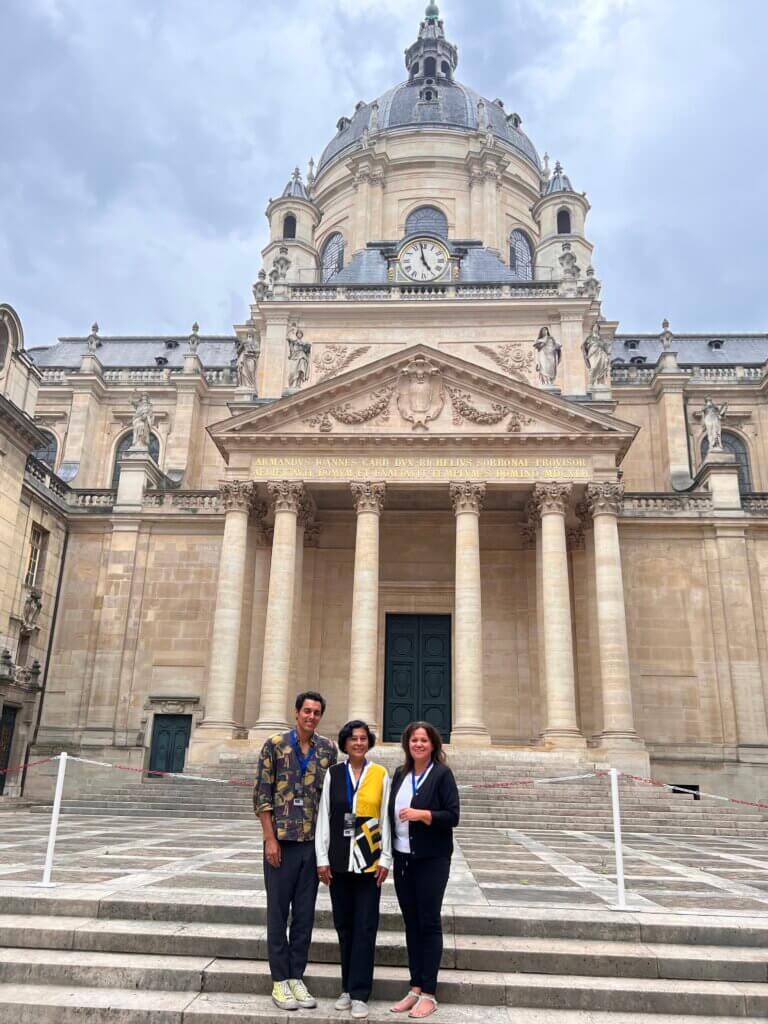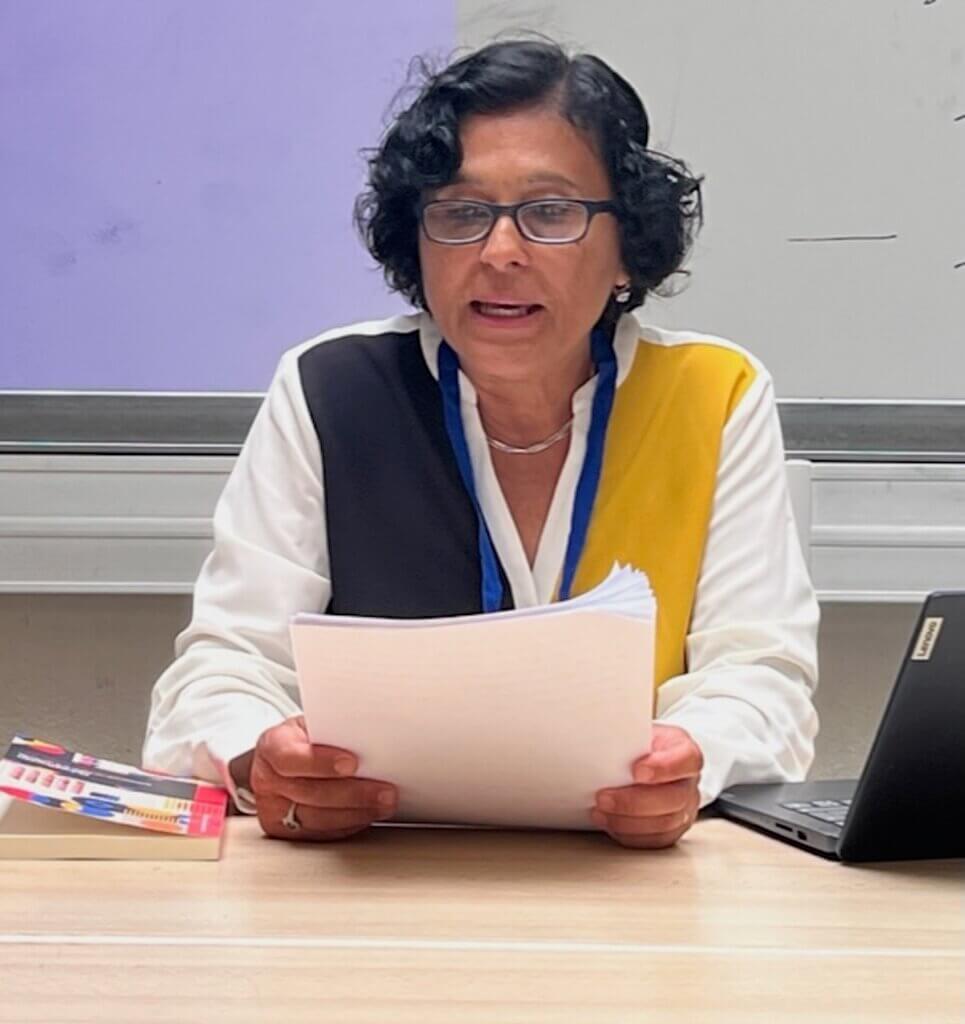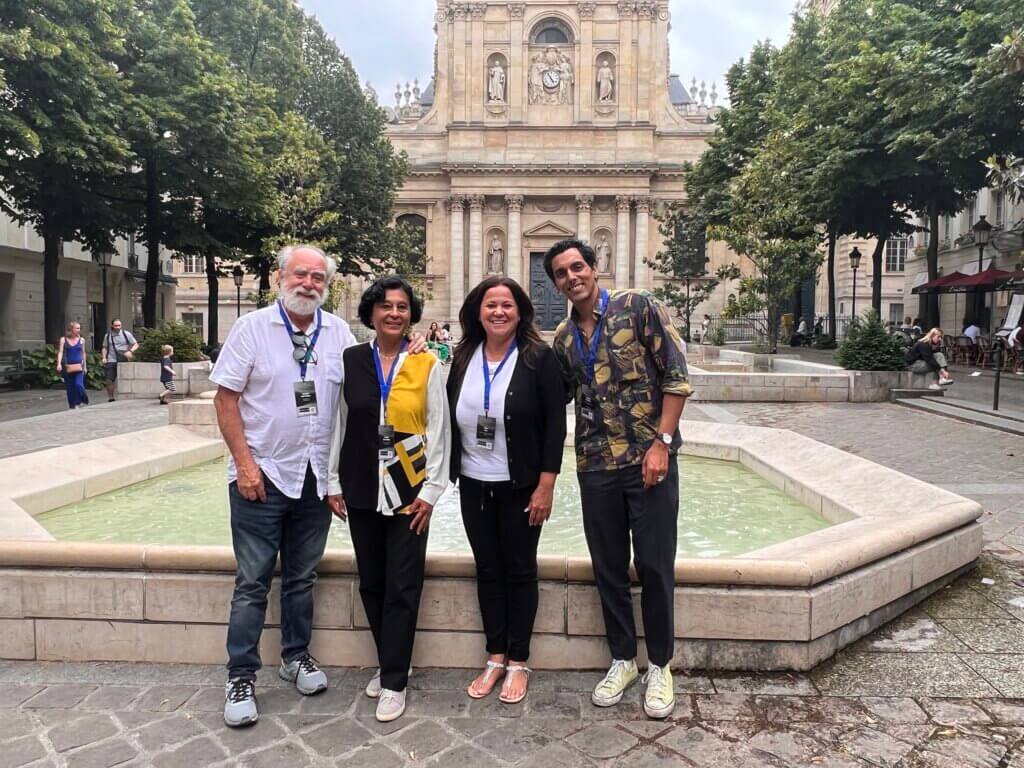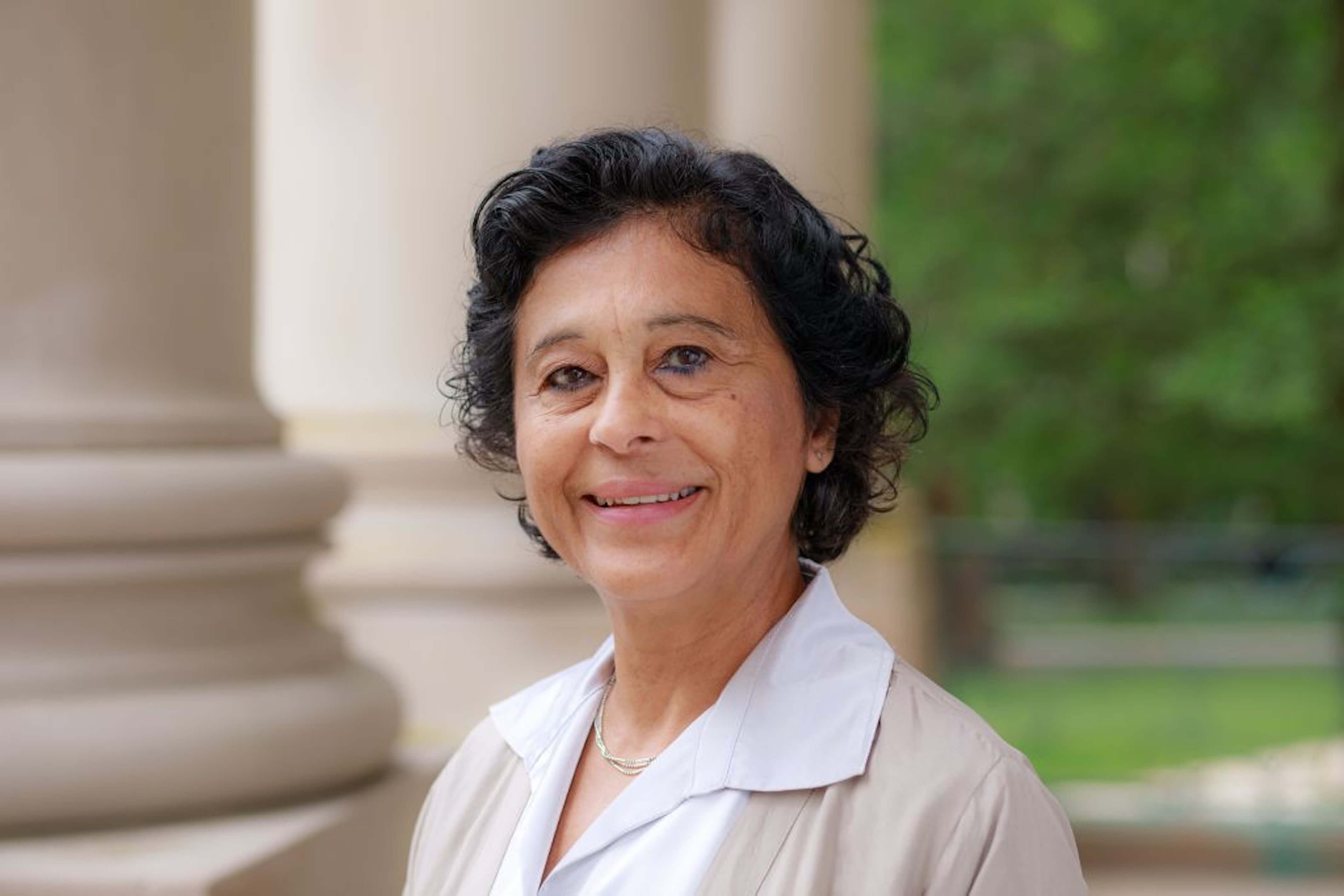Priscilla Gac-Artigas, Ph.D., professor in the department of World Languages and Cultures, delivered her paper, “Collectfiction and Poetry,” at the 21st Conference on New Directions in the Humanities that took place at the Sorbonne Université in Paris, France, on June 29.
Her paper was part of the panel, “Collectfiction: Transcending the Borders of the ‘Self’ in Creation: Collective Artivism as a Transgressive Approach to Literary Creation.” The panel also featured professors and researchers from different countries, including Dóra Faix, from the Spanish Department of the Eötvös Loránd (ELTE) University, Budapest; Julia Érika Negrete-Sandoval, editorial assistant, HarperCollins, New York; Valentín Finol Añez, Université de Bretagne Occidentale, France; and Chilean poet Gustavo Gac-Artigas.
In her paper, she applied the theory of collectfiction, a concept that she developed, to contemporary poetry using examples of a varied geographical pool of poets such as Gioconda Belli (Nicaragua), Martín Espada (U.S., Puerto Rican origin), Gustavo Gac-Artigas (Chile), Amanda Gorman (U.S.), and María Ángeles Pérez López (Spain).



Collectfiction refers to a term Gac-Artigas coined in 2017 to describe literary texts in which the authors propose to the readers a work of fiction that unfolds recognizable (auto)biographical, cultural, historical, and socio-political references either within the text and/or the paratexts, and, through experimentation with specific narrative, dialogic, or structural resources, they invite them to engage in a proactive reading and participate creatively in the reconfiguration of the story proposed. It posits a form of collective artivism that develops from the urgent, conscious, or unconscious desire of authors and artists to respond to social crises through art. Through a reading pact that encourages to engage in the game of creativity and be part and participant in the reconfiguration of a story and through the transgression of the boundaries of literary genres and traditional narrative resources, a synthesizing collectfiction that surpasses the restrictive limits of “my” story to become an encompassing and political “our” story, is fostered. This reconfiguration of the story in turn fosters the collectfiction of a historic period or collectivity in its temporal-spatial dimension. See: “Colectficción: sobrepasando los límites de la autoficción.” Iberoamericana Vervuert, Madrid 2022.
In addition, Gac-Artigas’ article, “Vivir para contarla: de la autoficción a la colectficción en la literatura y las artes”/´Living to Tell the Tale´: From Autofiction to Collectfiction in Literature and the Arts, where she explains what collectfiction is and how she got to develop the concept and coin the word, appeared in the volume of essays: “Instabilités et Mutations: les jeux du “je”dans la literature latinoaméricaine.” Shaker; 1st edition (28 April 2023: 135-164) edited by Lise Demeyer, Romain Magras, Isabelle Pouzet Michel et Benoît Santini of the Université Université du Littoral Côte d’Opale, Boulogne-sur-Mer, France.
Gac-Artigas is a Fulbright Scholar, a full member of the North American Academy of the Spanish Language (ANLE) and correspondent member of the Royal Spanish Academy (RAE).

